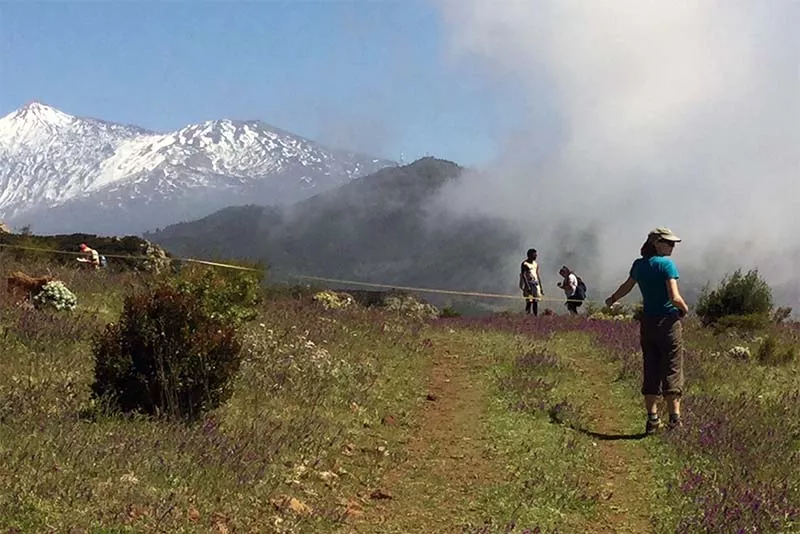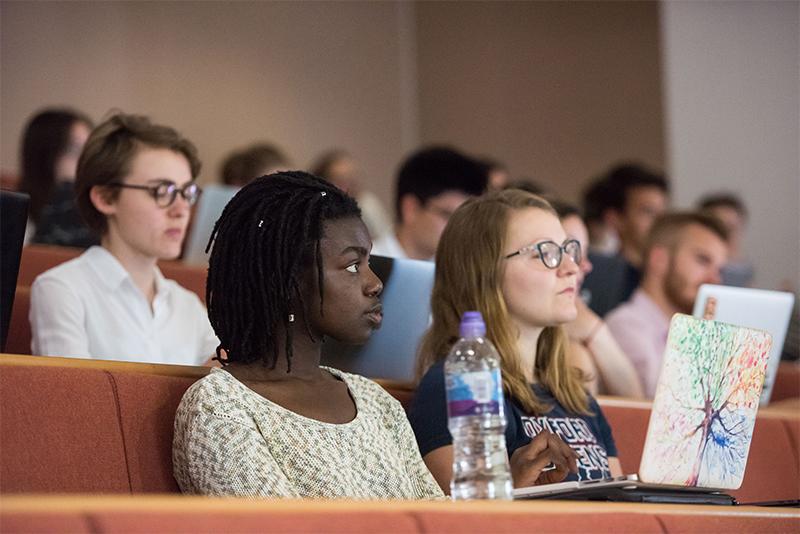Suggested resources for further reading
If you want to develop some of your interests in Geography through further reading, there is a wide range of freely available online resources you can explore. These are just some suggestions. See where your interests lead you!
When engaging with any material, here are some questions to consider (and perhaps to note down to help you remember):
- What is the argument in the book/article/podcast etc?
- What evidence was used to support the argument? Can you spot any problems with the evidence or the argument?
- Try to decide what you think
Oxplore
Oxplore is a digital resource created by Oxford University to get 11-18 year olds thinking about the big questions of our times.
See, for example, the section on Power which asks questions like 'does gender matter?' and 'should everyone be paid the same?' These questions are designed to get you thinking and give you links to further resources.
Geography Directions
Geography Directions is a blog site published by the RGS-IBG which considers a range of contemporary issues.
See, for example, the post co-authored by Professor Jamie Lorimer on what geographers can learn from the 2020 anthropause.
The Conversation
The Conversation is "an independent source of news and views, sourced from the academic and research community". It covers a diverse range of topics, many of which are of interest to geographers.
See for example an article on the water crisis in a First Nation community in Canada or this discussion on the importance of seagrass meadows in UK waters as a carbon sink.
Podcasts
Magazines
Books
Below is a selection of suggested books which might be of interest to a prospective Geographer, covering a range of topics connected to Geography. Many of these texts are for non-academic audiences and so will likely be available in most bookshops and public libraries.
Please note that this is not necessarily an endorsement of these texts, and it is not necessary to read any of them to apply to study with us.
- A History of the World in Seven Cheap Things: A guide to capitalism, nature, and the future of the planet (2017) by Raj Patel and Jason Moore
- Africa Is Not A Country: Breaking stereotypes of modern Africa (2022) by Dipo Faloyin
- Border Wars: The conflicts that will define our future (2021) by Klaus Dodds
- Do We Need Economic Inequality? (2017) by Danny Dorling
- Doughnut Economics: Seven ways to think like a 21st Century economist (2018) by Kate Raworth
- Feral: Searching for enchantment on the frontiers of rewilding (2013) by George Monbiot
- Geography: Ideas in profile (2016) by Danny Dorling and Carl Lee
- Invisible Women (2019) by Caroline Criado Perez
- Popular Culture, Geopolitics, and Identity (2nd ed, 2019) by Jason Dittmer and Daniel Bos
- Rare Earth Frontiers: From terrestrial subsoils to lunar landscapes (2017) by Julie Klinger
- Rebel Cities (2012) by David Harvey
- Slowdown: The end of the great acceleration - and why it's good for the planet, the economy, and our lives (2020) by Danny Dorling
- The Goldilocks Planet: The 4-billion-year story of Earth's climate (2012) by Jan Zalasiewicz and Mark Williams
- The Human Planet: How we created the Anthropocene (2018) by Mark Maslin and Simon L. Lewis
- The Mushroom at the End of the World (2015) by Anna Tsing
- The Shock of the Anthropocene (2016) by Christophe Bonneuil and Jean-Baptiste Fressoz
- There is No Planet B: A handbook for the make or break years (2019) by Mike Berners-Lee
- This Changes Everything: Capitalism vs. the climate (2014) by Naomi Klein
- Where do Camels Belong? The story and science of invasive species (2014) by Ken Thompson
- Why We Disagree About Climate Change (2009) by Mike Hulme








